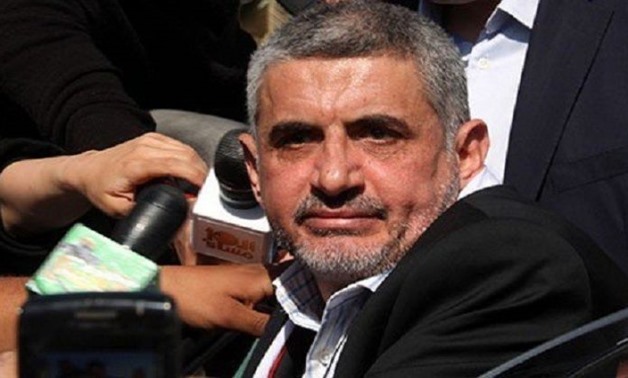
Muslim Brotherhood’s businessman Hassan Malek - File photo
CAIRO - 18 May 2018: Cairo Criminal Court has held six sessions thus far only to unseal the curious exhibits of the case of the Muslim Brotherhood’s businessman Hassan Malek.
Malek and 23 others in the case are charged with attempting to jeopardize the national economy through a meticulous plan, in addition to funding the Brotherhood. Some of the defendants are still at large.
Unsealing the exhibits began April 1, and the next session is scheduled for May 20, where prosecution witnesses will also be questioned. The case involves 23 other defendants, but the exhibits mainly belong to Malek.
Malek was arrested in October 2015, making him one of the few Brotherhood figures who were not arrested right after the dispersal of Rabaa sit-in in August 2013 after a long protest that demanded the reinstatement of President Mohamed Morsi. Although it has been more than two years since he was arrested, he has not been sentenced yet.
Malek, 59, was added to a three-year terror list in July 2017. The Cassation Court will decide on his challenge on May 26. He denies all the charges and says he only printed the “inciting” documents found in his apartment off the internet, because they “renounce” violence.
The defendant was born into a Muslim Brotherhood family, but he does not view himself as a leader in the Islamist group, according to his interrogation with the prosecution. However, in 2006, he was sentenced to seven years in prison for being a leader in the group, which organized a militant-style demonstration at Al-Azhar University at the time.
He was pardoned in March 2011 by the Supreme Council of Armed Forces, along with famous Brotherhood leader and businessman Khairat al-Shater.
The businessman’s work has been versatile, but mainly revolved around manufacturing/selling conservative attire for women and computers. He is also a business partner of jailed Shater, who intended to run for presidency in 2012, but was legally excluded, owing to his 2006 conviction along with Malek.
The exhibits and their context, according to the prosecution
1 – A shield gifted by former Palestinian Prime Minister Ismail Haniyeh to Malek. Haniyeh is a Hamas leader, an Islamist movement that is an offshoot from Egypt’s Brotherhood.
2 – Six masks with the image of Morsi printed on them.
3 – A map of Egyptian gas pipes and other “inciting” documents.
4 – Documents explaining mechanisms to destroy the tourism industry in Egypt, protesting at tourist areas, and creating an opposition to the government after laying off some 12 million workers in the sector.
5 – Documents on mechanisms to jeopardize investments in Egypt by persuading foreign investors to leave Egypt and convincing local investors that the country does not provide an investment-friendly environment.
6 – Documents on organizing continuous protests, especially in Cairo's main streets and districts where embassies and homes of ambassadors are located. The papers also include instructions on blocking the Ring Road, 6 October Bridge and the Nile Corniche for an hour. Such major roads constitute the backbone of traffic in Cairo.
The documents also included contacting companies in Egypt via the phone, email and Youtube videos to encourage them to abandon the country.
The plan could have inflicted estimated state losses of $40 million and disrupted the work of major companies in 10 Ramadan City, along Suez Road, as well as closed ports in Alexandria and Port Said.

Comments
Leave a Comment